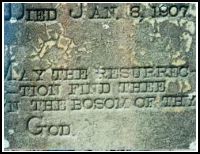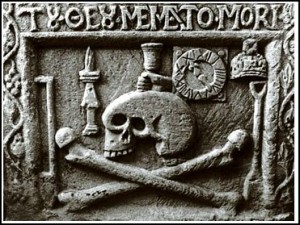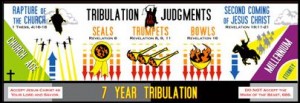I’m convinced that Christians will have a real physical body in the afterlife. It seems that Jesus did. After His resurrection, He said in Luke 24:39 “See My hands and My feet, that it is I Myself; touch Me and see, for a spirit does not have flesh and bones as you see that I have.” Jesus had flesh and bones, and so  will we. We also find that he ate fish as a demonstration of his truly physical body as well. Thus, we too will follow in the same fashion in the resurrection.
will we. We also find that he ate fish as a demonstration of his truly physical body as well. Thus, we too will follow in the same fashion in the resurrection.
Of course there were differences between his earthly body and his resurrected body. He could appear and disappear at will. He ascended into the clouds with a jetpack or without being “beamed up” to a starship. He could move through walls. He could mask his appearance so that he would not be recognized, then he could make himself recognizable also. Paul says that all believers will be changed. He calls Christ “the firstfruits” of those who are asleep in 1 Corinthians 15:20. It reads, “Christ has been raised from the dead, the firstfruits of those who have fallen asleep.” The raisings of Lazarus, Tabitha, and the widow’s son are not true resurrections, but simply revivifications. They were brought back to their old lives and old bodies only to die again. The resurrected body is imperishable and it’s immortal.
Paul sees Jesus’ resurrection as the pattern for those who are to follow. Geisler writes, “The contrasts that Paul makes do not suggest a disembodied state, but a perfected body. He says, ‘We shall all be changed, in a moment, in the twinkling of an eye’ (vv. 51–52). This change is from perishable to imperishable, mortal to immortal, dishonor to glory, weakness to strength. The body is perfected, not by doing away with it, but by removing its imperfections. When Paul says that to be absent from the body is to be present with the Lord (see 2 Cor. 5:6), we can easily see that he means absent from this earthly body. At the resurrection, we will be reunited with it as it is made an immortal body.” Further, there will be continuity between our earthly bodies and our heavenly bodies. Just as Jesus was recognizable, so too will those who follow be recognizable. We will still be ourselves, but the best “ourselves” we could possibly be!
Chuck
“For as by a man came death, by a man has come also the resurrection of the dead. For as in Adam all die, so also in Christ shall all be made alive.” 1 Corinthians 15:21-22







